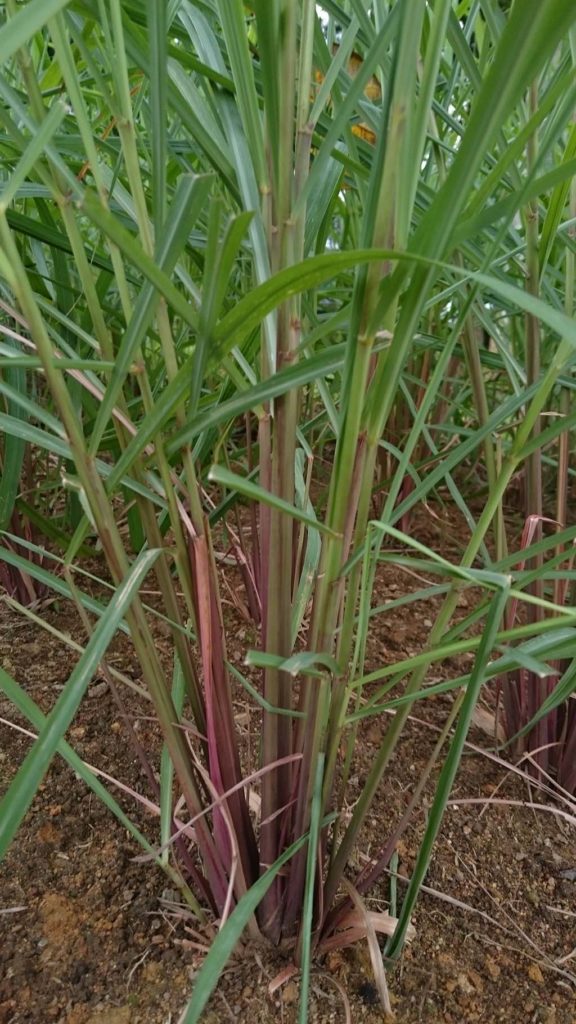
Mali
Grasses
e.g.: Lemongrass, Cymbopogon citratus

General Description / Cultural Significance
One of the largest countries in Africa, Mali is a landlocked country where people and plants alike have adapted as best they can to survive in the hot, dry, drought-prone climate. Mali is a pluralistic society made up of many different ethnic groups, each with its own customs; however, the majority are Sunni Muslims who still practice local, traditional spirituality. Even though half of the country’s population lives in urban environments, the nomads of Mali still follow the water and the nearly two hundred difference species of native and naturalized grasses as they move across the northern desert every couple of weeks. The grasses and water keep the sheep, goats, and camels alive. As the nomads say, “If the animals die, we die.”
One such grass which paves the way of health and prosperity for traveling Malians is Cymbopogon citratus, Lemongrass. Across Mali’s flat plateaus and plains, Lemongrass grows annually in the harsh climatic conditions. Its vibrant green leaves have been used in roof thatching and broom construction throughout different regions of Africa and various forms of the plant are utilized as insect repellant during the particularly buggy, hot season in Mali. The plant’s practical and medicinal uses coincide through the common use of Lemongrasses’ rhizome as a toothbrush, which can also be chewed to cleanse the mouth of bacteria. Essential oil from Cymbopogon citratus, derived from steam distillation of dried Lemongrass leaves, is proving to be an innovative substitute for synthetic fungicides in the realms of sanitation and food preservation. In fact, the plant’s essential oil is so effective at inhibiting the growth of bacteria and fungi in food and at repelling insects and rodents, that Lemongrass essential oil is being discussed as a serious solution to the public health threats of poor food preservation techniques around the world.
Of all the Cymbopogon species, Cymbopogon citratus carries the most undeniable pharmacological potential. Across the global herbalism traditions, Cymbopogon citratus leaves have been prided for their medicinal use to treat diabetes, inflammation, cold and flu symptoms, and digestion disorders. Lemongrass oil contains active constituents which are known for their insecticidal, anti-protozoan, anticancer, anti-HIV, anti-inflammatory, and anti-diabetes effects. Traditional Lemongrass Tea not only transmits the health benefits of Cymbopogon citratus’ constituents, but it also exudes the warm aromatic and flavorful reminder of home to all Malian’s who drink it.
Climate Change / Conservation Status
Beginning in the 1970s, the once plentiful Lake Faguibine of the northern regions of Mali began to disappear. As prolonged droughts set in more frequently, the lake’s vast waters were slowly replaced by sand dunes, and the surrounding farmland which depended on irrigation from the lake and the River Niger disappeared entirely. Fishing is no longer possible. The land cannot be cultivated. Sand is overtaking local homesteads. Limited space to herd and grow crops is pushing once amicable farmers into conflict with one another. The last remaining tree stands around the lake are felled by Malians who recognize the soil erosion and dehydration that comes with deforestation, but have nowhere else to turn to make money. From the dried lakebed, flammable gas is seeping up to the surface, igniting the already scarce forests and rendering the soil truly infertile. More than half of the region’s population has left home in search for work, land, and a habitable home.
As of 2019, nearly ninety-eight percent of Mali was facing impending desertification. The Sahara Desert is creeping across the grasslands where invaluable aromatic and medicinal plants such as Lemongrass grow. The situation of Lake Faguibine and Mali’s landscape at large is a gross example of how the poorest regions of earth are being impacted by climate change the most, and the soonest. Climate change is an everyday concern for Malians, who are only now starting to see the help of humanitarian aid. Projects to stabilize sand dunes that have overtaken villages and schools are underfoot, but much more will need to be done should the many Malians affected by the changing climate and ecosystem of their country see it transformed once again to a livable, thriving environment.
This is all happening at a time when the value of Lemongrass is being discovered on an international scale. For example, the plant was introduced into the feed of cattle and found to reduce methane emissions by up to thirty-three percent. Lemongrass can also reduce the methane released into the atmosphere by sheep and goats. These improvements are of great value to agriculture at this time and Lemongrass could very well become a income-producing crop because of it.
Alternate Names
Lemongrass
Citronella Grass
Ginger Grass
Sources
Aluyor, E.O. & Oboh, I.O., 2014. Preservatives | traditional preservatives – vegetable oils. Encyclopedia of Food Microbiology, pp.137–140. DOI: 10.1016/B978-0-12-384730-0.00263-9
Avoseh, O. et al., 2015. Cymbopogon species; ethnopharmacology, phytochemistry and the pharmacological importance. Molecules, 20(5), pp.7438–7453. DOI:10.3390/molecules20057438
Clark, A., 2022. Mali. The Encyclopedia Britannica. [website]
Ekpenyong, C.E. & Akpan, E.E., 2017. Use of Cymbopogon citratus essential oil in food preservation: Recent advances and future perspectives. Critical Reviews in Food Science and Nutrition, 57(12), pp.2541–2559. DOI: 10.1080/10408398.2015.1016140
Evans, D.L., n.d.. The Recipes of Africa. [website]
Ibrahim, K. et al., 2018. Grasses of Mali. Artibus Asiae. [website]
Plant Village, 2022. Lemon grass. Plant Village. [website]
ReliefWeb, 2021. Mali: Climate change transforms lake faguibine into desert, exiling population. OCHA. [website]
ReliefWeb, 2019. Displaced by the Desert: An expanding Sahara leaves Broken Families and Violence in its Wake. OCHA. [website]
RxList, 2021. Lemongrass: Health benefits, side effects, uses, Dose & precautions. RxList. [website]
The Washington Post Company, 1996. Nomads by Choice. The Washington Post. [website]

